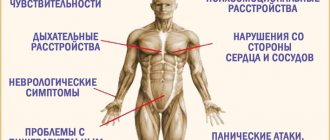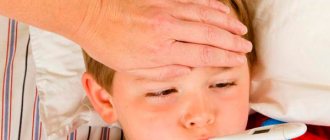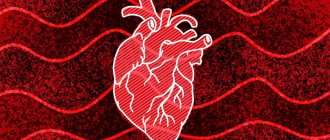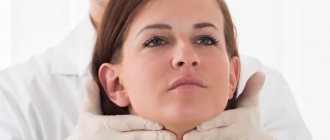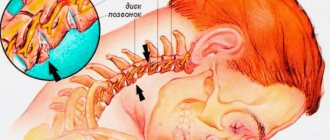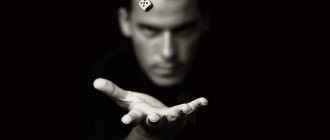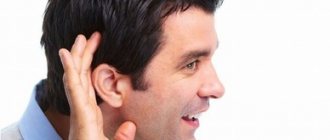The word “bruxism” has Greek roots and means “teeth grinding.” In addition to unpleasant sounds and sensations, bruxism often leads to tooth wear, the formation of various dental defects, gingivitis, problems with the jaw joints, pain in the masticatory muscles, and even headaches.
Night bruxism in children is a very common phenomenon (occurs in 50% of children) and if the child has not yet lost his baby teeth, then there is no need to worry. If your child has daytime bruxism, you should consult a specialist. In adults, this disorder occurs much less frequently (about 10% of cases). Often people don’t even know that they grind their teeth in their sleep and are surprised to learn about it from relatives (or spouses).
Causes and risk factors
The causes of the disease can be problems in the otolaryngological, neurological, dental areas; a predisposing psychological background also plays a large role in the occurrence of bruxism. The pathogenetic substrate for the occurrence of the disease is a disruption in the functioning of neuromuscular synapses.
With an integrated approach to treating the disease, the prognosis is favorable, and bruxism often resolves on its own.
Despite the fact that the etiology of bruxism can be discussed with a high degree of probability, all causative factors have not been fully identified. The most studied include:
- deformation of the dentition;
- malocclusion;
- partial absence of teeth;
- irrational prosthetics;
- disturbances in the activity of the central and peripheral nervous system;
- extrapyramidal side effects of drugs;
- endogenous and exogenous intoxications;
- defects in the structure of the facial skeleton;
- diseases of the temporomandibular joints;
- sleep disorders;
- perinatal CNS injuries;
- psycho-emotional stress (internal anxiety, anger, excitement before bed, etc.);
- persistent stress;
- epilepsy.
Prevention
You should not treat this problem superficially. After all, bruxism is not just a contraindication to orthodontic treatment and most prosthetic methods. This is a serious problem that affects a person's quality of life. So, its consequences may be:
- destruction of enamel and, as a result, frequent dental diseases;
- the appearance of periodontal disease and other gum pathologies;
- worsening negative psycho-emotional state, depression, psychological discomfort, etc.;
- malocclusion;
- loosening and premature loss of healthy teeth;
- the formation of painful ulcers in the mouth;
- dysfunction of the temporomandibular joint.
And simply the presence of an aesthetic defect, which, if strongly abraded, becomes noticeable during a conversation or when smiling. This is already enough for a person to begin to develop complexes and close himself off from communication.
To prevent such manifestations and unpleasant consequences, it is better to engage in disease prevention. For this, doctors recommend:
- monitor the condition of your jaws during the day so that they are not constantly compressed from internal tension;
- play sports;
- often take walks in the fresh air;
- replace caffeinated drinks with herbal infusions;
- try to switch to a healthy diet, giving up fast food and sweets;
- the last meal should be no later than two to three hours before bedtime;
- maintain a rest regime, preventing yourself from getting overly tired;
- if necessary, take additional vitamin-mineral complexes, or at least B vitamins, magnesium and calcium;
- It is best to minimize stress or learn to cope with it in accessible ways.
Forms of the disease
There are 2 main types of bruxism:
- day;
- nocturnal (sleep bruxism).
The main difference between the daytime form is the absence of abrasion of hard dental tissues and the rhythm of involuntary contraction of the masticatory muscles, characteristic of the night form.
Signature
Depending on the previous pathology, the disease can be primary or secondary.
On average, 10 to 20% of adults and about 30% (according to other sources - 50%) of children are susceptible to bruxism.
Clinical forms of nocturnal bruxism:
- noisy (with grinding) – patients produce creaking sounds with closed rows of teeth sliding relative to each other. There is a high probability of developing premature abrasion of the chewing surfaces of tooth crowns;
- quiet (with compression) – predominant squeezing of the jaws without their involuntary movement, which leads to the appearance of microcracks and chips of the enamel;
- mixed - predominant, noisy and quiet episodes can be repeated many times during one night or alternate on different days.
Bruxism with squeezing contributes to the appearance of microcracks
What is bruxism?
This is a condition when a person tenses, clenches his teeth and rubs them together, as when chewing food (however, in the absence of food). Interestingly, this excessive jaw activity, which can be really powerful, is very common and occurs in a large percentage of the population, similar to snoring. The teeth and dental fixation apparatus are damaged due to long-term overload, which is not achieved in such an intense form during normal chewing.
In psychologically stressful situations, bruxism can appear during the day, but most often occurs at night. In the shallow phase of sleep, the so-called. In the REM (rapid eye movement) phase, characterized by rapid eye movement, low muscle and brain activity, a person grinds his teeth, clenching them with a destructive constant load for 50-70 seconds per hour.
The problem may appear in early childhood.
Bruxism in adults is a subconscious behavior, so most people do not even realize that they are susceptible to this behavior until their loved ones notice it. The medical term “bruxism” includes not only teeth grinding, but also teeth clenching.
Symptoms
The main manifestations of bruxism:
- periodic tension of the chewing muscles, accompanied by grinding or excessive clenching of the teeth;
- on the teeth – areas of pathological abrasion of the enamel;
- inflammatory processes in periodontal tissues;
- cracks and chips of enamel;
- chips of ceramics on artificial dentures.
Periodic tension of the chewing muscles during bruxism leads to fatigue of the facial muscles and headaches
Since bruxism often occurs during sleep, the patient may not be aware of the problem for a long time. Warning symptoms in this case:
- morning headaches, migraine-like attacks;
- pain in the temporomandibular joints;
- fatigue of facial muscles;
- pain, ringing and noise in the ears;
- diffuse pain in the dentition;
- episodes of morning dizziness;
- feeling of a “stale head”;
- pain in the maxillary and frontal sinuses, especially intense in the morning;
- soreness, discomfort in the muscles of the neck, back, shoulders;
- astheno-neurotic conditions;
- sleep disturbances, sudden awakenings at night;
- daytime sleepiness, decreased performance.
Reasons for this phenomenon
Bruxism is a very unpleasant phenomenon, but it is not considered a disease. Bruxism can be put on a par with snoring, sleepwalking, nightmares - those conditions that arise involuntarily and are very difficult to cure. A person should be able to fully control the movements of the facial muscles, but if a person has fallen asleep and the facial muscles are still tense and continue to contract, the jaws spontaneously clench, this is accompanied by the grinding of teeth.
Bruxism is a problem not only in the field of dentistry, but also in neurology, psychology, otolaryngology, and gastroenterology. And each of the listed medical areas gives its own explanations for the causes of bruxism.
From a dental point of view, the cause of bruxism is malocclusion, edentia, incorrectly installed braces, crowns, fillings, as well as dentists during dental treatment. All this leads to deformation of the teeth, as a result of which the upper and lower teeth cling to each other and teeth grinding occurs.
From a psychological point of view, the causes of involuntary jaw clenching are stress, overexertion, depression, and nervous experiences that cause sleep disturbances. Thus, the facial muscles are constantly tense, and the jaws are compressed, which leads to a spasm of the masticatory muscles.
From a neurological point of view, the cause of teeth grinding is a disorder of the nervous system, because bruxism is often combined with tremor, epilepsy, and apnea. Tension in the masticatory muscles can be caused by damage to the motor neurons of the trigeminal nerve. In this case, bruxism is rather a symptom of a more serious disease of the nervous system.
Also, the cause of this phenomenon is often considered to be helminthic diseases, lamblia in the liver, helminths (ascariasis, enterobiasis, etc.). This version has not been scientifically confirmed in any way, however, parasitism by worms and helminths depletes the body, leads to a deficiency of B vitamins, which is dangerous for the normal functioning of the nervous system and can lead to conditions such as bruxism. Therefore, it would be a good idea to undergo bacteriological tests for helminths to rule out this cause.
After analyzing several thousand cases of bruxism, doctors noticed that people suffering from Parkinson's disease, Huntington's chorea, and those who abuse alcohol, caffeine, nicotine, and sleeping pills are prone to grinding their teeth. Other risk factors are traumatic brain injury, chewing gum abuse, and taking strong antidepressants. In addition, it was noted that most often people suffer from bruxism whose work requires extreme attention (neurosurgeons, opticians, some military personnel, etc.), as well as people who use drugs and heavy smokers.
Differences between daytime and nighttime bruxism
It is customary to distinguish between night and daytime bruxism depending on the time of day when it occurs. In case of daytime bruxism, its main cause is nervous overstrain and the general emotional state of a person. In this case, teeth grinding is more of a habit than a pathology and can be treated with self-control and other psychological techniques. A person must learn to consciously control attacks of jaw clenching, constantly monitor himself - if he cannot do it on his own, then it is better to turn to a psychologist who will suggest specific actions for this kind of self-control.
Night bruxism is involuntary, accompanied by short-term but regularly repeated grinding of teeth at night, i.e. during sleep. It is equally common in both men and women. Night bruxism in adults and children is slightly different in its causes, course and treatment principles. Let's take a closer look at these features.
Teeth grinding in an adult
The main cause of bruxism in adults is severe stress, for example, the death of a loved one, fear, “blowing off steam” at work, dangerous work that requires maximum concentration and the search for quick solutions (police, army, special forces).
Teeth grinding also often occurs after the installation of dentures. A foreign body in the mouth causes discomfort; a person often rubs his teeth against a crown or braces without even noticing it. As a result, the enamel suffers, the risk of caries increases, and the bite is disrupted.
Child grinding teeth
Bruxism in children is less dangerous than in adults. It usually appears in early childhood before the age of 5 years, and by the age of 6-7 years it disappears on its own. The attack lasts no more than 10 seconds and is repeated several times a night. During the day, teeth grinding occurs less frequently in children, although parents often mistake the child’s usual exploration of his teeth for bruxism. But such a grinding sound is not dangerous.
But if a child has enlarged adenoids, nocturnal attacks of bruxism last longer than 10 seconds, the child is capricious, or has difficulty chewing food, then it is necessary to show the child to the dentist.
The cause of bruxism in children can be emotional overstimulation before bedtime (computer games, watching TV, outdoor games, etc.), so before sending the child to bed, you need to calm him down, set him up for sleep, and, if necessary, sing a lullaby or read a fairy tale.
Another reason is having dinner shortly before bedtime, especially if the food is dense or unusual for the child. In this case, give your child yogurt or fruit an hour before bedtime so that the food is easier to digest in his tummy.
In addition, the child may have his own nervous shocks. For example, he was offended in kindergarten or his favorite toy broke - as a result of nervous tension at night, the baby may grind his teeth. In this case, it is important for parents to talk to the child, calm them down, find out the essence of the problem and find a solution. And only then send you to bed.
Diagnostics
As already mentioned, a person often learns that he is grinding his teeth from his relatives, who noticed it at night. Since teeth suffer, if a person decides to start treatment, he goes to the dentist. The dentist examines the oral cavity, identifies a number of signs of bruxism, and treats damaged teeth. Objective diagnosis is carried out using a bruxchecker - a special mouthguard selected individually for each patient. At night, the patient inserts the mouth guard into his mouth, then gives it to the doctor. Using a mouth guard, the dentist determines the nature of the damage and identifies the areas of greatest stress on the teeth.
Since the causes of teeth grinding often lie in the field of psychology, to diagnose bruxism, consultation with a psychologist, neurologist and other specialists is necessary.
Treatment
Treatment of the disease should be comprehensive, implemented in parallel in several areas:
- pharmacological and physiotherapeutic relaxation of the masticatory muscles;
- elimination of defects in the dental system;
- psychotherapeutic influence;
- Using a dental guard while sleeping.
Patients with bruxism are advised to wear a mouthguard while sleeping.
Causes of bruxism, why do adults grind their teeth during sleep?
There may be several causes of the disease, but in most cases they are caused by psychogenic factors and frequent stress; it is also called “businessman’s disease.” Holding back negative emotions or trying not to show excitement, a person clenches his teeth. In this case, the chewing muscles are in a state of tension (hypertonicity), and during sleep the muscles contract spontaneously, and teeth grinding occurs. At this time, your heart rate may increase or your blood pressure may increase. But the patient continues to sleep and in the morning does not remember anything about the attack.
There are several main reasons:
- Psychological. Associated with constant stress, emotional experiences, and a state of passion.
- Neurogenic. Caused by dysfunction of the nervous system, central or peripheral. It may be caused by organic damage to the trigeminal nerve, which leads to tonic tension of the facial muscles.
- Osteopathic. Consequence of diseases of the musculoskeletal system, cervical spine. Osteopaths also adhere to the version that during sleep the body tries to restore craniosacral rhythm or unblock cranial sutures.
- Dental. The result of an incorrect bite or absence (excess) of teeth, improper installation of dentures, fillings, braces, etc.
- Different.
Bruxism can also be triggered by other factors, but much less frequently than those listed above:
- benign or malignant neoplasms;
- long-term alcohol abuse and smoking;
- excessive consumption of coffee, energy drinks, strong tea;
- overeating (especially at night);
- taking medications that stimulate the nervous system;
- respiratory defects (deviated nasal septum, adenoids, severe runny nose).
Bruxism is also studied in psychosomatics, a fairly new direction in medicine that studies the influence of personal characteristics on the development of pathologies. When studying the encephalograms of patients suffering from bruxism, abnormalities are revealed in the areas of the brain responsible for the emotional state and behavioral reactions.
Daytime teeth grinding
This form of bruxism can be controlled by a person, that is, the jaw closing reflex can be suppressed. In addition, the daytime form of the disease can be expressed by thumb sucking, constant lip biting, etc. The psychosomatics of the disease is that in the process of nervous tension the muscles of the jaw and face contract, and the teeth involuntarily clench. To eliminate the manifestations of bruxism, you must always keep the position of your jaws under control, especially in any stressful situations. It is also recommended to visit a psychologist to learn how to manage your mental state in various situations.
Diagnostics
When problems with teeth occur (cracks and abrasion of enamel, increased sensitivity), pain in the maxillofacial muscles, first of all, turn to the dentist. A preliminary diagnosis is established based on an examination of the oral cavity and a survey of the patient.
To clarify the diagnosis, examinations are carried out using special mouth guards and brux checkers. The impression is made individually, used during sleep, and in the morning the doctor studies the degree of load on certain areas of the jaw, specific teeth, and identifies occlusal obstacles.
Additionally, polysomnography is performed, which detects the motor activity of the facial muscles, chewing muscles during sleep, or electromyography. Consultation with a neurologist, psychologist, otolaryngologist, gastroenterologist is necessary.


